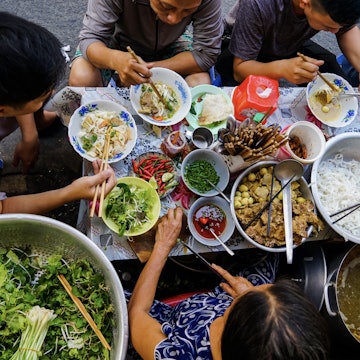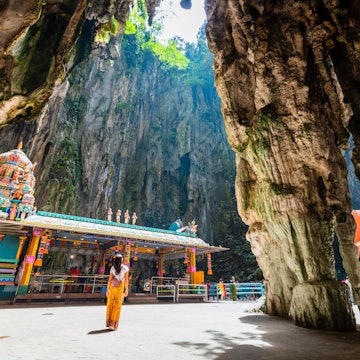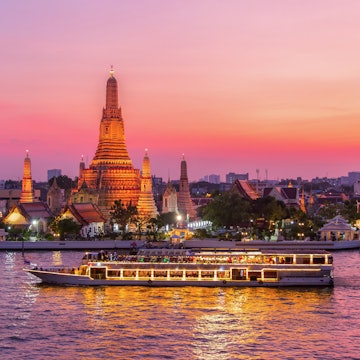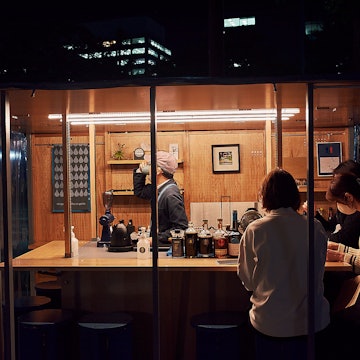
How to visit Cambodia on a budget: 13 tips to stretch your money further

Oct 8, 2025 • 5 min read

Stung Areng in the Cardamom Mountains. Naeemphotographer2/Shutterstock
Nick Ray is the author of the Phnom Penh and Siem Reap chapters of Lonely Planet's Cambodia guidebook, which was published in September 2025.
Like much of mainland Southeast Asia, Cambodia is an incredibly good value compared with destinations in Europe and North America.
Accommodations in hostels, homestays and guesthouses are a fantastic value. Eating out can be a little more expensive than in neighboring Thailand and Vietnam, but this is offset by bargain booze, including as little as US$0.50 for a draft beer in many backpacker bars, affordable wine and very cheap spirits and cocktails. Transportation is affordable and comfortable, whether you are taking long-distance buses, short hops in a tuk-tuk or the occasional domestic flight to save some time.
Note that while Cambodia’s official currency is the riel (4000r = approx. US$1), the US dollar is widely used. Small change may arrive in riel.
Use these top tips to make your budget stretch even further.

1. Check out regional budget airlines flying into Cambodia
Lots of regional budget carriers operating out of Thailand, Vietnam, Malaysia and Singapore fly into Cambodia. Check airlines like Air Asia and Vietjet Air for heavily discounted fares compared with the national flag carriers.
2. Arrange an e-visa in advance if traveling overland
Immigration officials are notorious for overcharging for visas at the Cambodian land borders, particularly those shared with Thailand and Laos. Expect the Thai baht exchange rate to be calculated heavily in their favor. Save yourself time and hassle, and just take care of your visa before you arrive.
3. Visit Cambodia in the low season to save on lodging
Cambodia has a short high season and a long low season. Consider a visit between April and October to save money on accommodations, particularly on the southern islands, where long-stay, low-season discounts are available.

4. Stay with a local family in rural Cambodia
Some of the cheapest accommodations anywhere in Cambodia are homestays with local families. Costs are around US$6-19 per night, with home-cooked meals either included or available for a few extra dollars. Popular destinations for homestays include Chi Phat and Stung Areng in the Cardamom Mountains, Koh Trong near Kratie, Chambok near Kirirom National Park, and villages around Siem Reap.
5. Buy a local SIM card to save on roaming charges
Roaming charges in Cambodia are extremely expensive, so plan to get connected using a local SIM card after you arrive. There are lots of competing mobile networks, and all offer very cheap data bundles for visitors.
6. Long-distance buses are the cheapest choice
Overnight sleeper buses are generally a pretty comfortable way to get around Cambodia and will save the cost of a night's accommodation when traveling longer distances, such as Siem Reap to Sihanoukville. Express minivans are also a fast and comfortable way to travel between provincial capitals.
7. Download a ride-hailing app
If you hail a tuk-tuk or taxi in the street, chances are that you will have to negotiate to get a reasonable fare. Download one of the many ride-hailing apps used in Cambodia, like Grab or PassApp, to eliminate haggling over fares and avoid the need to pay cash late at night.

8. Sample the food stalls in markets
Eating out in Cambodia is a little more expensive than in neighboring countries like Thailand or Vietnam, but it doesn’t have to be. Watch where locals gather at market stands, food stalls and street vendors to ensure the food is fresh and tasty.
9. Look out for happy hours and promotions in Phnom Penh
Alcoholic drinks are generally very cheap in Cambodia, including wine and spirits. However, Phnom Penh has many more sophisticated establishments than the rest of the country, so keep an eye open for happy hours, usually around 5–7pm daily.
10. See the incredible variety of Cambodia’s wildlife in one location
Phnom Tamao Wildlife Rescue Center is most definitely not a zoo but a place of refuge for wildlife confiscated from poachers and traffickers. See tigers, elephants and many more rare mammals at this excellent facility about 45km from Phnom Penh for just US$5.

11. Tour one of Kampot’s most famous pepper plantations
Kampot is famous for its aromatic pepper, which is recognized with a UN Geographic Indication. Visit La Plantation pepper farm on an impressive free tour that includes an introduction to the pepper varieties grown in the region and a spicy tasting session. The on-site restaurant has a delicious pepper-themed menu.
12. Do as the locals do and buy a krama
Krama (checked scarf) have a multitude of uses. They are primarily used to protect wearers from the sun, dust and wind. However, they are also slung around the waist like sarongs, used as towels for drying the body, knotted at the neck as decoration, tied across the shoulders as baby carriers, placed on chairs or beds as pillow covers and used to tow broken-down motorbikes – the list is as long as your imagination. Just a few dollars gets you a multifunctional item that saves you both money and space in your backpack.

13. Use swimming pools at boutique hotels in leading destinations
If you are staying in budget digs, you probably will not have access to a swimming pool, unless you are at one of a handful of super hostels in Phnom Penh or Siem Reap. But boutique hotels around the country often allow outside guests to purchase day passes (from US$2.50–35, depending on the facilities) that may even come with a credit for food and drinks.
A guide to daily costs in Cambodia
Night in a hostel bed: US$5–15
Night in a guesthouse: US$10–15
Night in a self-catering apartment: US$20–40
Local restaurants and street eats: US$1–4
Long-distance bus from Siem Reap to Sihanoukville (515km): US$28
Bus in Phnom Penh: US$0.40
Local beer: US$1–2
Coffee: US$1.50–3
Tuk-tuk: US$1 per km













